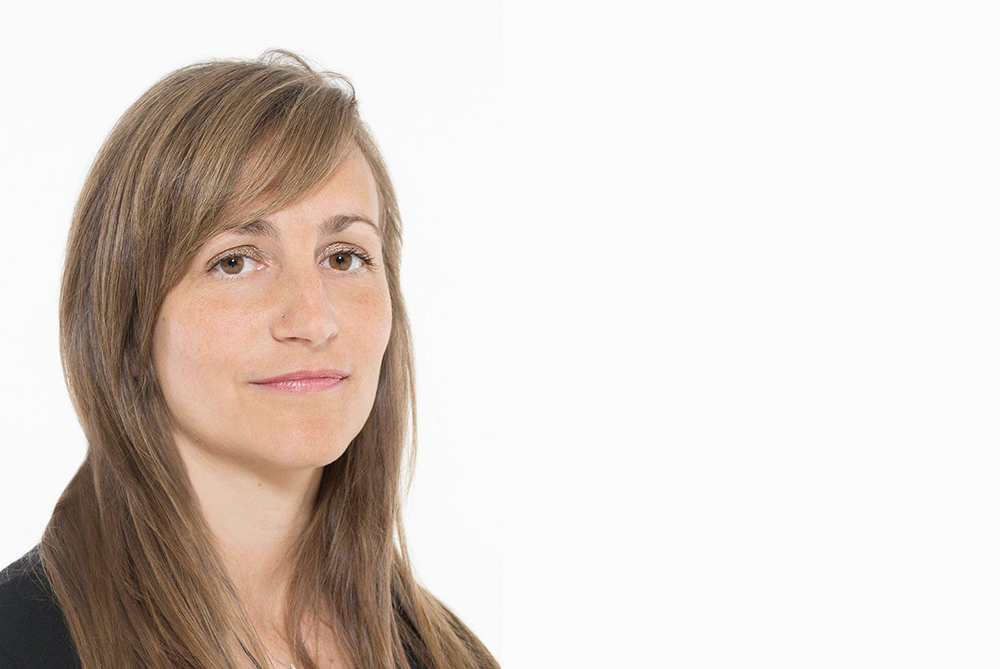
Ketty Paller is not just another entrepreneur. A humanist with a passion for wellness, hiking and nature, in 2016 she launched UpSens, a startup specialising in environmental monitoring technology. Today the company, which has its headquarters in Trentino, Italy and is part of the Optoi Group, makes hi-tech sensors and devices to help improve people’s quality of life.UpSens’ philosophy has little to do with that of many start-ups dreaming of Silicon Valley.
The company is driven by values such as the concern for the quality of the air we breathe every day at home or in the office, and the attention to the environment and well-being. It is no coincidence that Ketty has a deep respect for nature, and when she can she loves to take a walk in the woods. “I think we only have to learn from nature. As Leonardo da Vinci said, ‘nature is full of infinite reasons’. Let’s take a deep breath and start learning again!”. We had a little chat with her, here’s what she told us!
The dream of making the world greener (and healthier)
Ketty, why did you create UpSens?
We cannot remain indifferent to what is happening in the world: the climate crisis, the destruction of the biosphere and the sixth extinction, increasingly polluted air, excess CO2… Obviously each of us is unique and finds his own way to contribute. For example, there are those who try to improve the world by teaching, those who write novels, those who do research, those who do environmental activism. I try to contribute in three ways. As a citizen, through small daily gestures such as driving an electric car and recycling; as a mother of a little girl, educating her to respect people, animals and nature; as an entrepreneur, with UpSens.
UpSens wants to be my – or rather our, since we are a team – contribution to the attempt of making the world a better place, for us but especially for our children and our children’s children. How? By developing sensors for environmental monitoring, especially for indoor spaces, where we all spend most of our time: the office, the living room, the bedroom. What air do I breathe every day? Does the furniture I bought release harmful VOCs? At UpSens we want to answer questions like these, to give people the opportunity to measure, to know, to act.
Making the first steps
What is your story, Ketty?
After my studies in the humanities, I joined a technology group in Trentino, Optoi, led by a former researcher at the Bruno Kessler Foundation, one of Italy’s most important research centres. There I realised what contribution technological innovation can give to improving people’s lives. Of course, innovation can also be non-technological. Optoi is engaged in innovative solutions of high technological intensity, as it designs and produces sensors for manufacturing, aerospatial, and biomedical sectors. The group has a clean room, a white microcosm with its own procedures and rituals, where highly advanced optoelectronic sensors are produced.
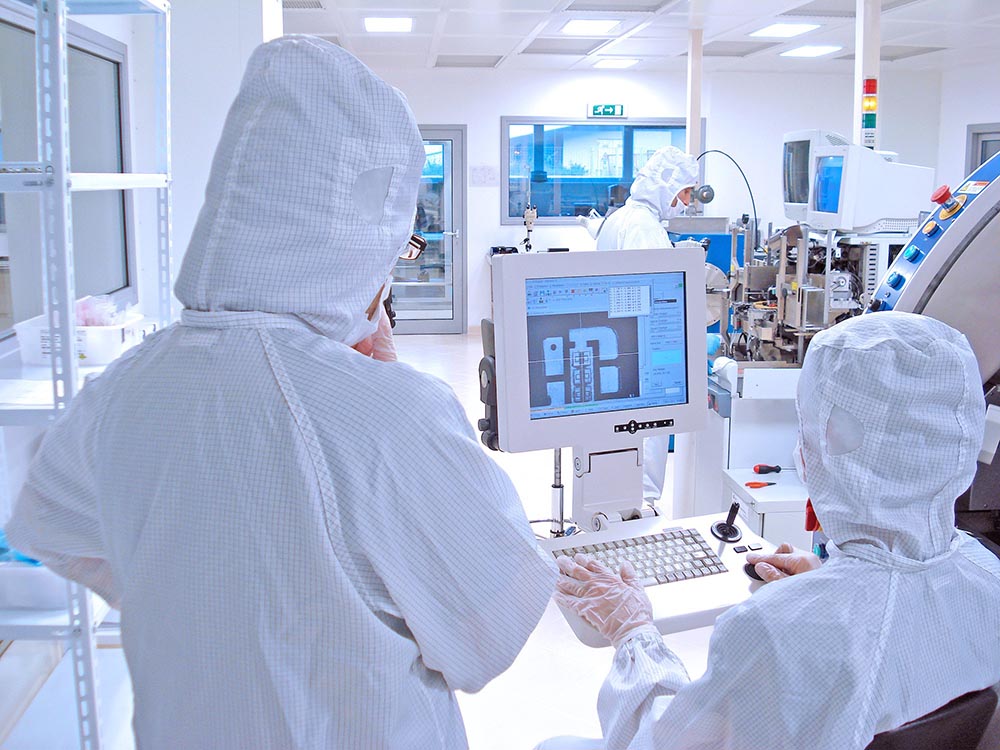
While I was working at Optoi, my daughter Gaia was born, and I asked myself the question: what kind of world will I leave to her and her peers? And since I have always been interested in environmental issues, in particular in air and water pollution, I decided with some colleagues to found UpSens, with the aim of putting the sensor technology developed by Optoi at the service of people and their desire to live in healthy spaces.
How did this attention to air pollution come about?
As an Italian, I have always been aware of the poor quality of the air breathed in the Po Valley. Already when I was little, in the 1980s, the subject of smog dominated the public debate. And then I’m from Trento [laughs], which means that I love spending my free time in the mountains, in the woods. The air you breathe in certain areas of Trentino is excellent. On the contrary, the air we breathe at home or in the office is often bad: too much carbon dioxide, VOCs etc.
What are VOCs?
It is an acronym that indicates volatile organic compounds. There are some, such as benzene, formaldehyde or toluene, that are not good for our health. And they can be released by seemingly harmless substances or products, such as new furniture, certain types of paint or household cleaners.
Green, the colour of breath
You mentioned the woods earlier. As you know, VAIA has a very deep relationship with the forests of the Dolomites. Which are the woods you love, and why?
Every forest in Trentino has its own specificity, and I dare say its own personality. Like many, I adore the Paneveggio Forest, which for centuries has supplied master luthiers in Italy and throughout Europe with its extraordinary fir wood. Walking through that forest is like plunging into a spring of tranquillity, of inner peace. It is no coincidence that the Japanese have developed the concept of shinrin-yoku, or forest bathing: all you have to do is walk through the greenery, filling your lungs with the scents, smells and aromas of the trees, the resin, the pine cones and leaves that have fallen to the ground, the flowers and plants that grow everywhere, to regenerate and forget the stress of our daily lives.
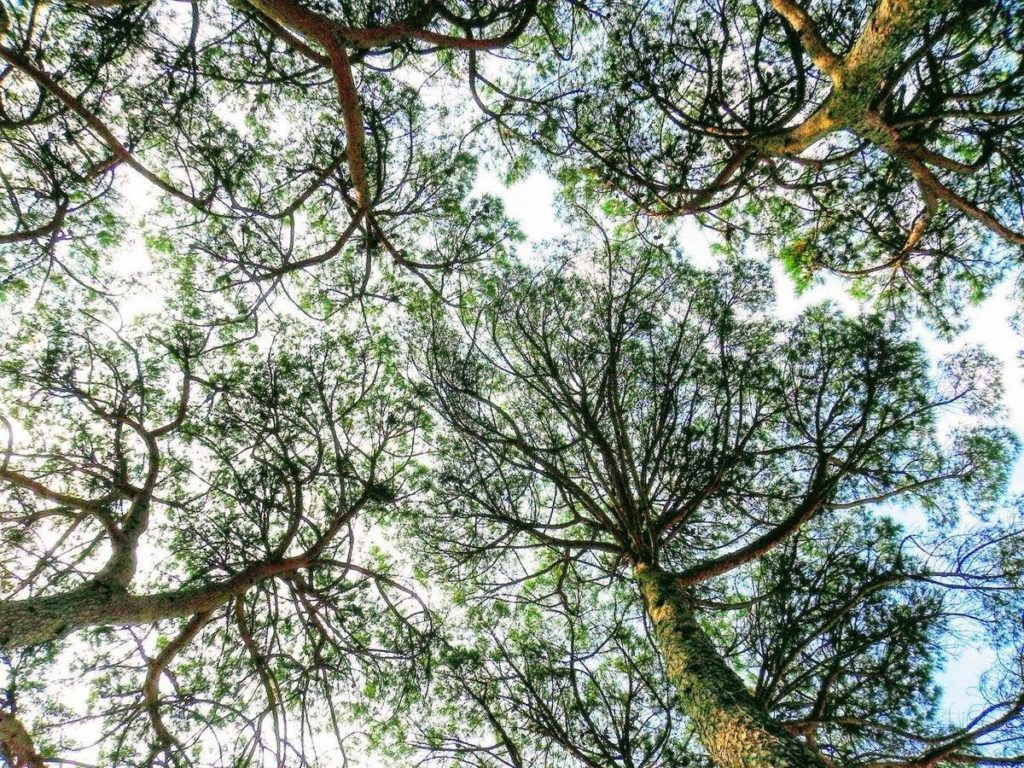
You often mention the importance of the act of breathing.
Exactly. All one has to do is imagine the verb ‘to breathe’ and take a deep breath to feel better. The truth is that we are so stressed, so chased by commitments and deadlines, that we forget to breathe. Breathing well, I mean. But breathing well, and breathing good air, is the first step towards a quality of life worthy of the name. The ancients knew very well the importance of breathing, as those who practice yoga know: just think of the discipline of pranayama, which means ‘breath control’.
One of your dreams is to make people breathe better.
That’s right. The quality of the air we breathe indoors is often even worse than the air we breathe in the street. This is something to think about. A well-ventilated space, where we breathe air with a low concentration of carbon dioxide, is a space that improves our quality of life, even significantly. Many people do not know this, but an excessive concentration of carbon dioxide can lead to drowsiness and malaise, and even a drop in concentration levels.
A matter of awareness
Your startup specialises in environmental monitoring technology. What is the philosophy that guides your work?
The philosophy that inspires us is to help people improve their quality of life through technological innovation, and to foster greater awareness of issues such as air pollution and the environment in general.
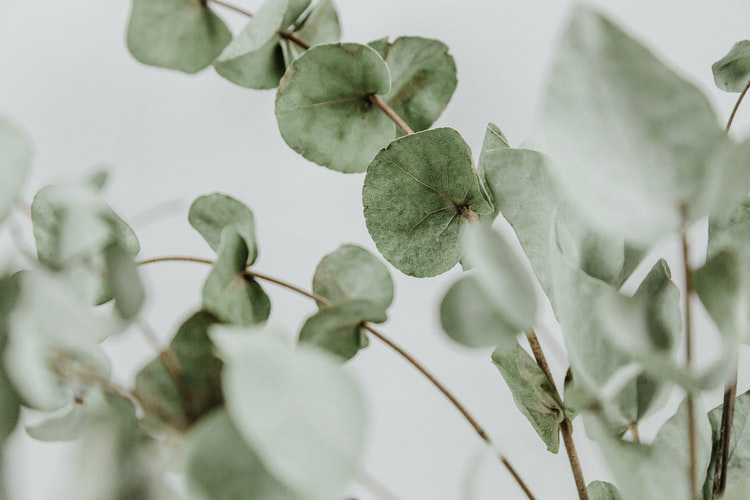
Awareness is a key word for you.
Of course it is! Our motto is knowledge through measurement, action through knowledge. Many of us take for granted the act of breathing, and the importance of breathing good quality air. The truth, to paraphrase a very famous Italian jurist, Piero Calamandrei, is that air is like freedom: you only realise its importance when you start to miss it. We want to try to make our community more aware: about air, about good habits (such as opening windows and airing spaces at the right time), about the climate crisis, about the contribution of greenery and trees, about well-being and so on.
Are you concerned about the climate crisis?
Of course I’m concerned. I am very worried, and I say this as a mother, as a citizen and as the CEO of UpSens. We have a few years to change course and try to avert the worst. In recent weeks we have seen fires raging in Sardinia, Greece, Turkey; deadly heat waves in Canada, and devastating floods in Germany, severe damage in Como, etc. Everyone is called upon to do their part, and companies do so by using their skills and human resources. VAIA does it with its cubes, which amplify stories of resilience and give a helping hand to the forests and communities of the Dolomites, UpSens with its technology.
A culture of well-being
Earlier you talked about well-being. What did you mean by that?
We do not do well if the environment around us is in bad shape. And of course the places where people have a bad or very bad quality of life are often ravaged by pollution, uncontrolled deforestation and construction, fires and so on. Nature and we human beings are intertwined. In fact, we need trees, mountains, good air and nature to feel good.
We can easily see this by decorating our flat or office with a few plants, such as the spathiphyllum or Japanese chrysanthemum, which help to purify the air by absorbing the aforementioned VOCs, such as formaldehyde and benzene. The sight of two or three lush green plants is enough to reduce our stress and boost our mood. In addition to purifying the air, certain plants can also make it more oxygen-rich. Many recommend the golden pothos, and the so-called mother-in-law’s tongue. On our blog and through the events we organise, we try to promote a culture of well-being.
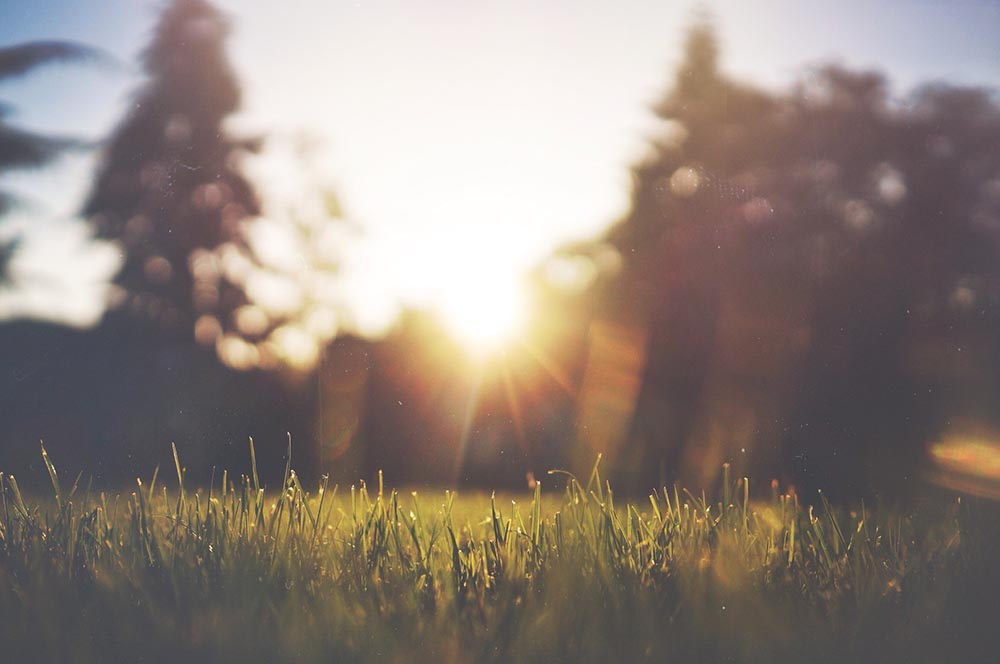
What does this refer to in practice?
A culture of wellbeing means, for example, preferring the Mediterranean diet, which all Italian doctors recommend, to the unregulated and unbalanced diet towards which hurry, routine and the many commitments often direct us. Obviously my daughter and I also indulge in a fast-food lunch from time to time, but this must be the exception: as a rule, at lunch and dinner we never lack vegetables, fresh fruit, whole-grain pasta and rice, extra virgin olive oil, fish, walnuts and almonds. As any good manager can confirm, an office with the right amount of light, the right ventilation and the right temperature is a place where people feel good and where they work better. Lastly, a culture of well-being means smart building, that is a different way of constructing and conceiving spaces that focuses on people and on their needs.
This is where design plays a crucial role, which is also very important for us at VAIA.
Of course. Italy is the land of design, and designers are very sensitive to issues of well-being, natural materials, light, air and temperature. It is no coincidence that we are also interacting a lot with architects and interior designers, because they play a fundamental role for our daily well-being by designing and organising private and public spaces.
Innovating, doing business, telling stories
You mentioned the products earlier, can you tell us more about them?
Gladly. The UpSens sensors were our first product line. Modular and portable, with a 100% Italian design, they are devices that allow you to easily measure some fundamental indoor parameters such as the concentration of carbon dioxide, total VOC, humidity, etc. They are “allies for well-being”, and those who buy one tend to take it with them all the time, even on holiday, perhaps to measure the air quality in their hotel room! We have recently presented QuAir, a hi-tech modular solution for companies, and for those who want to make a smarter house, hotel, school or library. QuAir measures temperature, humidity, total VOC, particulate matter, brightness level in the room, pressure and noise pollution.
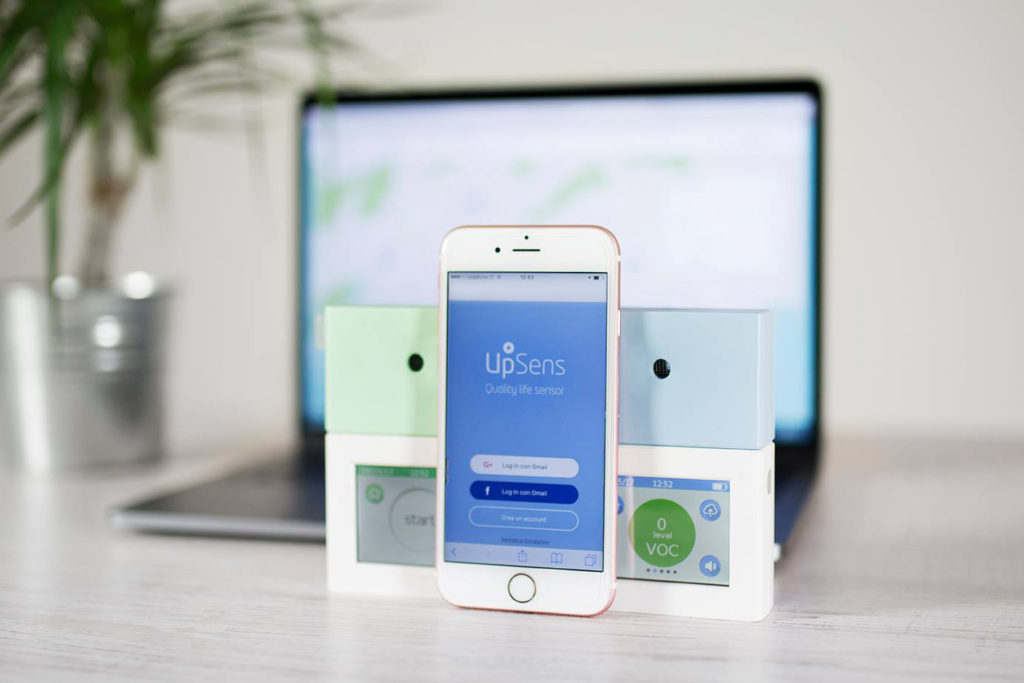
That’s a lot of stuff! Is it difficult for a startup to manage all this technological innovation?
No, but only if you have the right team. At UpSens we are a mix of humanists, with management and communication roles, and technicians, very good engineers on both hardware and software sides. In fact, we are hiring on that front, because technological innovation is no picnic, and you can only succeed if you can count on capable and creative colleagues.
You are a female entrepreneur, and Italy often does not help women very much.
Very true. Fortunately, things are changing, and I see more and more young women who are not satisfied with the status quo, but want to try and change the world, perhaps by creating their own startup or launching some very ambitious research project in biotech or data science. And I would like to say one thing: women entrepreneurs often have an extraordinary resilience, and a unique leadership ability, which is especially valuable in a time of crisis, and transformation, like ours.
One last question: as well as being an entrepreneur, you have also written a book…
An ebook, to be precise, in which I tell my story, and above all that of UpSens. It’s a small thing, it’s called “UpSens: a dream born with my daughter, a technology for everyone”. I think it could be interesting for those who want to create a hi-tech start-up in the environmental field and want to hear about the experience of those who have already been there. But I prefer to read more than write, especially novels and essays on human health, on the Mediterranean diet, on issues related to well-being and quality of life, and on nature. You know, I think we just have to learn from nature. As Leonardo da Vinci said, ‘nature is full of infinite reasons’. Let’s take a deep breath and start learning again!